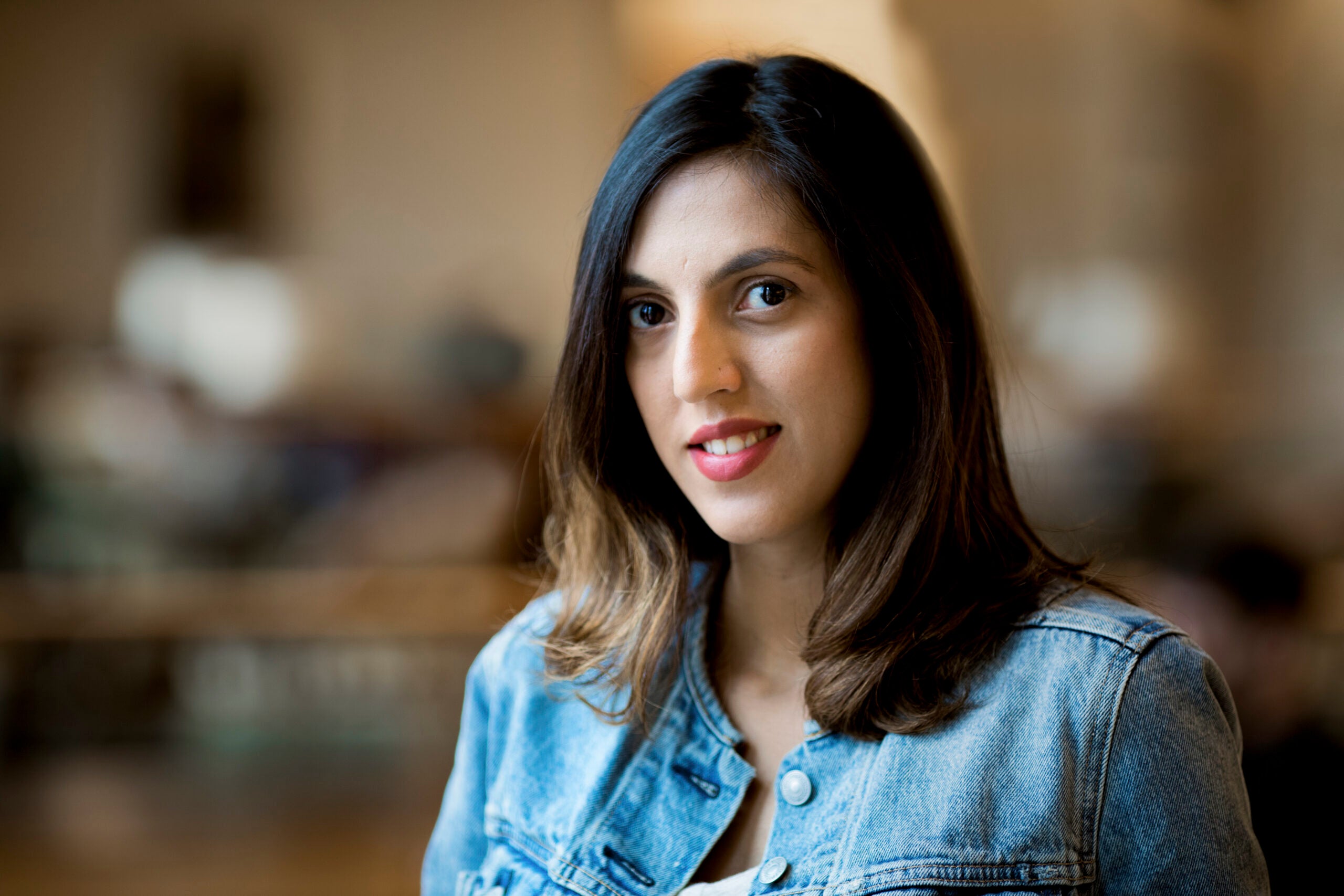
Credit: Lorin Granger
Maayan Sudai, an S.J.D. candidate at Harvard Law School, has been awarded a prestigious scholarship from Israel’s Dan David Foundation to support her work examining health activism from a legal perspective.
Every year, the Foundation identifies a set of contemporary issues in science and the humanities. This year’s subjects are drawn from the history of science, bioethics, and personalized medicine (the tailoring of medical treatment to individual patients). It then presents prizes to accomplished laureates, and scholarships to graduate and postgraduate students, in the year’s chosen fields. Past honorees have included several Harvard scientists, Harvard College alumni Al Gore and Yo-Yo Ma, and some 14 Harvard students in fields ranging from anthropology to physics; Sudai is the first recipient from Harvard Law School.
As an undergraduate at the University of Haifa in Israel, Sudai experimented with different courses before deciding to study law. “I immediately fell in love with it,” she recalls; “it provided a unique opportunity to do what I loved: expressing my ideas in a language of power, being creative, and effecting a change. I flourished.”
Through her work in the university’s Legal Feminism Clinic, Sudai became involved in advocacy on behalf of intersex patients (people born with biological sex characteristics that do not align neatly into male or female categories) confronted with recommendations from medical practitioners that they undergo hormonal or surgical sex normalization procedures at a very young age. Her work with the clinic — “it was supposed to be for only one year, but I just kept being involved, to this day actually” — has focused on facilitating negotiations among patients and their advocates, the medical community, and Israel’s Ministry of Health. The Ministry recently issued new guidelines that are “much more accepting of biological variation and emphasize patients’ rights to informed consent, even at early ages,” she explains.
In her dissertation, Sudai examines health activism in the United States, and explores the legal means that social movements can use to influence medical standards of care. “I was really intrigued not just with how the law could facilitate these negotiations, but also with how it distinguishes between, or supports, or refutes claims to know what’s in the patient’s best interest,” she explains. Advocates for intersex patients in the U.S., she observes, “have been much more creative in using the law,” finding, for example, an opportunity to bring a malpractice lawsuit against a hospital that performed surgery on a child who was in the custody of social services. In a lawsuit, “you have to talk to the judge or the jury and explain what you do, in language that we can all understand; this exposes the substance to criticism. When I say in my research that law generates capacity for advocates to critically scrutinize medical practices and authority, this [case] was a really good example,” she adds. “And with the presidential elections here, in this ‘post-truth’ era, I came to realize that my research is part of a larger conversation about how we know what we know, and how we differentiate between conflicting claims to knowledge.”
During her time at HLS, Sudai has been a fellow at both the Petrie-Flom Center for Health Law Policy, Biotechnology, and Bioethics and the Harvard Kennedy School Program on Science, Technology and Society (STS). “I highly recommend that people who come to Harvard to do graduate work immerse themselves in these types of fellowships, which provide an academic community and intellectual inspiration and nourishment,” she emphasizes. “Both the STS and the Petrie-Flom fellowships have enriched my research tremendously, and my ways of thinking about these questions. These communities engage with problems differently, but have links between them. It’s just a wonderful moment when you find these connections and can bring them into your scholarship.”
Sudai has received the Law School’s Irving Oberman Memorial Prize in Law and Social Change and its LGBTQ Writing Prize for sections from her work in progress.
When she completes her studies, Sudai hopes to work in legal academia, a goal she identified almost as soon as she began studying law. “A huge part of my success here comes from my supervisors and mentors,” she adds. “They’ve taught me so much, about how to be an academic and an intellectual, and about the balance between being a generous reader and a critical writer and thinker. These are skills for life.”
The scholarships will be presented in a ceremony at Tel Aviv University on May 7.
